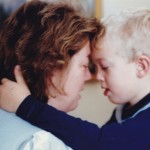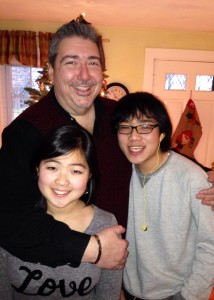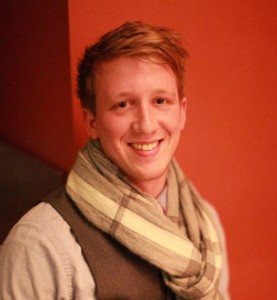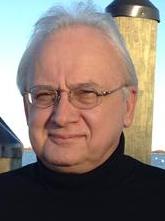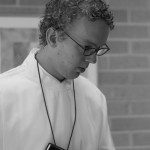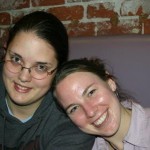Dear President Walter,

As I’ve watched the unfolding developments in the Covenant Church’s struggle with the topic of LGBTQ inclusion, I have felt at various times anger, frustration, disappointment, hurt, and deep sadness. I grieve for our church not only as a gay man who cannot fully thrive under our current position, but also as a lifelong Covenanter who laments that the process we have followed in this conversation has strayed from the wisdom of our heritage and brought us to a place of such deep divide. I am writing this letter publicly, but welcome your private response and will hold our correspondence in confidence. I want to speak to you candidly, from one Covenanter to another, and there are a few things that I want you to know.
The first thing I want you to know is that I have been hurt by your words and your leadership. I have read and watched your remarks on this topic over the past year, and I want you to know how some of your words sound to the ears of one who is actually gay: they hurt.
When you describe my sexual orientation merely as an “attraction” that I must “navigate,” that hurts. It undermines the legitimacy of the love LGBTQ people feel for their partners. It reduces our relationships to an attraction and denies them any credible depth and meaning. And it suggests that our orientation is a burden rather than a gift. In short, it makes me feel that you haven’t taken the time to fully understand me or my life.
When you list my orientation at the end of a list of alleged sexual sins, right after adultery and pornography, that hurts. It is dehumanizing. It takes part of my identity and smacks a negative label on it. And when this is the context for your first mention of the existence of non-heterosexual individuals, it makes it difficult for me to receive anything that follows with a spirit of love and good intent.
When you cloak our denomination’s position on same-sex marriage under a broad discussion of “the issue of human sexuality” and say that our position is “a high challenge to all of us”, that actually hurts, too. It feels a little like saying “All Lives Matter” at a racial justice rally: Yes, it’s technically true, but it misses the point of naming the unequal burden placed on a particular minority group.
When my life is reduced to an “issue”, thus making me negatively one-dimensional, that hurts. Why must LGBTQ individuals always be spoken of in such contentious terms? Even within our stated position, can we not affirm that God has equipped LGBTQ individuals with significant gifts for ministry and that we have much to offer the church? We are not an issue, we are the Body of Christ.
In every correspondence that has come from your office in the past year, I’ve been lead to believe that LGBTQ individuals played little to no role in your discernment process. This hurts. It feels as if our stories and our voices are not important. It feels as if you are talking about us without a willingness to talk with us. It feels as if we are some sort of pariah or outcast you are afraid to come into contact with, a headache that you wish would go away.
I have been hurt by words you have spoken, and I have also been hurt by that which you have left unspoken. Over the years I’ve heard many unkind, even hateful, things said about LGBTQ people. While I have pretty thick skin, our youth and others across our church who struggle to accept their orientation or gender identity are extremely vulnerable. In an age where hate crimes and suicide and depression are significantly higher within the LGBTQ population, we need to be able to call homophobia what it is: sin. And the church should be leading the way in the opposition of hatred and violence in all of its forms. One of the ways the church is uniquely equipped to combat hatred is with our core message that ALL people are created in God’s image. Which is why our church’s silence in condemning homophobia hurts so much. If we aren’t part of the solution, we are part of the problem. Homophobia is sin, and our church is complicit.
Although your words and actions have been hurtful to me, the second thing I want you to know is that I forgive you. I know you are an honest and good man of deep and sincere faith. I don’t doubt that you have studied scripture carefully and have sought God’s guidance through these matters. I believe you have reached your position honestly, and that your intentions to love others are heartfelt. We may disagree, yet I trust that you are coming from a place of love. And even though our ideas of love differ, and that difference has caused much pain in my life, I forgive you.
The years I spent in the closet were dark years. I lived in fear of the judgment I would receive from the church. When I came out of the closet, I was surprised by the magnitude of the love and acceptance I received. The freedom I experienced allowed me to let go of my fear. I found a new sense of security, rooted in the knowledge that I am created and loved by God, gay and all. And that is part of the reason I am able to forgive you: I am able to forgive because of the affirmation I received from many in the wings of our church that spoke a love one cannot find within our current guidelines. Their ministry brought a healing grace into my life, and now it brings a threat to their ministerial standing. So I want you to know that I forgive you in spite of the church’s position, not because of it.
In a spirit of reconciliation, the third thing I want you to know is that I am committed to being your companion in this long and difficult journey. One of the most troubling aspects of the recently released guidelines for clergy and the accompanying resource on dissent was the suggestion that clergy who find themselves in ongoing dissent with the church have only two principled options: to yield to the church’s position, or to conclude their service with the church. Two options: yield, or leave. This sort of fork-in-the-road approach seems antithetical to the Gospel of Jesus, one who was consistently finding a “third way.” And it feels contrary to the Covenant I have known and loved, a church which has prided itself in finding a “via media” – a “middle way” – when faced with hard questions.
I believe that the Covenant Church is uniquely positioned in these contentious times. We can show there is a difference between hard and harsh conversations. Hard conversations are part of discipleship. They can lead to greater fidelity in our walk with God and in service. Hard conversations are entered to build up and make better. Harsh conversations are entered to win and destroy. They breed greater recalcitrance and polarization. One of our six affirmations is “the reality of freedom in Christ.” This means we focus on the evident biblical center of what unites us in Christ, not on peripheral matters not clear in Scripture. Within the boundaries of all of our other affirmations, we extend “space” to each other. The Covenant is not a self-contained echo chamber that only reinforces to each other a single voice or perspective. At our best, we speak into one another, not past each other. We want to live respectfully in the polishing cross-currents gained by wrestling with matters together biblically and with hope.
This is the Covenant Church at its best. It’s the Covenant I grew up with and served throughout much of my life. It’s the kind of Covenant Church I still believe in. And I hope that you still do, too, because I didn’t write that last paragraph – you did, in 2010. Your words tell me that in order for our church to navigate these troubled waters and find that middle way, we are going to need each other. And that is why I want you to know I am willing to have this hard conversation with you. I suspect many of my LGBTQ Covenant friends would similarly be willing to meet with you, if you would be willing to hear our stories. Will you have this hard conversation with us?
The final thing I want you to know is that I will pray for you and all who serve in Covenant leadership. I pray for your health and strength, and for wisdom and discernment to respond to the vast demands placed on you. I thank God for your commitment and dedication to this church and her mission. And I join you in praying for our dear church, that even in great tumult we may join together in common mission, for the sake of the gospel in the world, and for the flourishing of all God’s children.
Your faithful companion on the middle way,
Andrew Freeman
Cc:
Mark Novak, Executive Minister, Develop Leaders
Dick Lucco, Executive Director of Ministry Development
Andy Sebanc, Chair, Board of the Ordered Ministry
Will Davidson, Chair, Executive Board of the ECC
Council of Superintendents
David Kersten, Dean, North Park Theological Seminary
Author’s note: Through much of last winter, my mother Bev regularly spoke of how she wished she could have an opportunity to speak with President Gary Walter. “I just want 10 minutes of his time,” she’d often say. She died from cancer on April 17th, far too soon, and before she had the opportunity to have that conversation with Gary. My mother devoted much of her life to serving the Covenant Church, and she was heartbroken by the pain and division she saw being caused by our inability to have this hard conversation. My mother loved everyone with a fearless love. She wasn’t afraid of hard conversations, and in fact knew how to ask the hard questions that brought people together and challenged them to examine themselves and then look beyond the current challenge to see the bigger picture. She was an exceptional leader, she was a “churchwoman” par excellence, she was a true Christian. More than anyone in my life, she was the prime example of what it means to be “a companion of all who fear the Lord.” I miss her and her voice every day, and humbly try to follow her example wherever I can. And so it is in that spirit, and in her memory, that I have written this letter.

